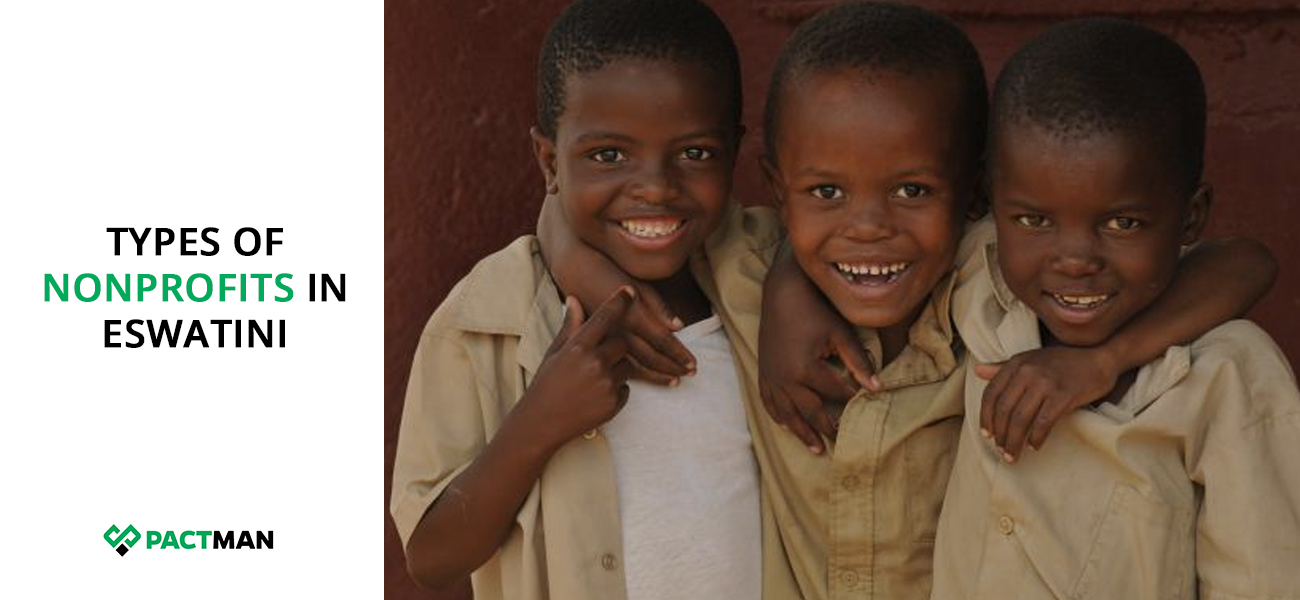Eswatini, formerly known as Swaziland, is a landlocked nation in Southern Africa. Typically, the various types of nonprofits in the country run freely, with minimal interference from the government. It can be said that the socio-cultural norms and values of Eswatini are generally supportive of generosity.
In this article, we will consider the various types of nonprofits in Eswatini and their operations.

- Nonprofits are catalysts of social change in a nation.
- NGOs in Eswatini primarily focus on five key social issues.
- With recurring developments across the globe, nonprofits must seek improved ways to impact their regions of operations
What are the types of nonprofits in Eswatini?
Eswatini recognizes three nonprofit classes. Each of these entities are governed by a government act.
1. Company Limited by Guarantee
According to the provisions of the Companies Act of 2009, individuals which include both domestic and foreign are generally free to establish and incorporate nonprofit organizations. These types of nonprofits are operated by guarantors who promise to contribute a certain sum of money toward the business’s debts.
The owners of institutions like sports clubs, workers’ cooperatives, and membership organizations that want to benefit from limited financial liability most frequently form a company limited by guarantee.
Furthermore, revenues won’t often be dispersed to the guarantors because they’ll be reinvested back into the organization to advance its non-profit goals. For this purpose, the company will lose its right to apply for charitable status if any revenues are paid to the owners.
2. Cooperative Societies
The Cooperative Societies Regulations of 2005 and Cooperative Societies Act of 2003 governs cooperative registration and operation in Eswatini.
This Act seeks to foster a climate that is favorable for the growth of these types of nonprofits throughout the nation. Additionally, the National Co-operative Development Policy of 2017, acknowledges cooperatives as tools for socio-economic development.
By and large, a society that is eligible to be registered under this Act must have as its goal the advancement of its members’ economic and social interests. This could be through cooperative principles and compliant projects that are based on mutual aid.
Above all, cooperatives must obtain the required government assistance and adhere to applicable laws, cooperative principles, and cooperative ideals.
3. Trust
All trusts are required to be registered with the Master of the High Court. These types of nonprofits are only as effective as the expert who creates them.
Generally, what the trustees may and may not do with the assets in their custody will be specifically stated in the trust deed. A trust also requires a deed designating the trustees who will hold and oversee the trust assets. Also, the standards by which the trustees must act in the deed must be specified.
A trust is required to have at least two trustees, ideally three. Likewise, these entities must be established legally and with legal protection.
What are the primary activities of nonprofits in Eswatini?
The various types of nonprofits in Eswatini majorly focus on five key social issues. The focal issues of nonprofits in Eswatini are Health Care Delivery, Poverty Alleviation, Food Security, Orphaned and Vulnerable Children, and Education. These entities operate freely with minimal interference from the government.
In Eswatini, People’s Organizations (POs) commonly register as members under the voluntary umbrella organization known as the Coordinating Assembly of Non-Governmental Organizations (CANGO). In terms of its members, the latter’s main duty is to exercise some kind of regulatory control.
Basically, organizations are free to choose their board members, management, and organizational policies. Hence, they are not constrained by internal governance frameworks.
There are a few POs in Eswatini that support democracy. This includes the Open Society Initiative for Southern Africa (OSISA) officially registered in the country. Furthermore, Grant aid is provided through OSISA to strengthen democracy, human rights, and governance in the country.
Conclusion
It is well known that nonprofits are catalysts of social change in a nation. Hence, the activities of NGOs cannot be ignored. By all means, nonprofits must seek improved ways to impact their regions of operations. This is especially true with recurring developments across the globe which are also shaping communities.
If you enjoyed reading this article, do let us know. Please, share your comments and suggestions with us at the bottom of this post.


